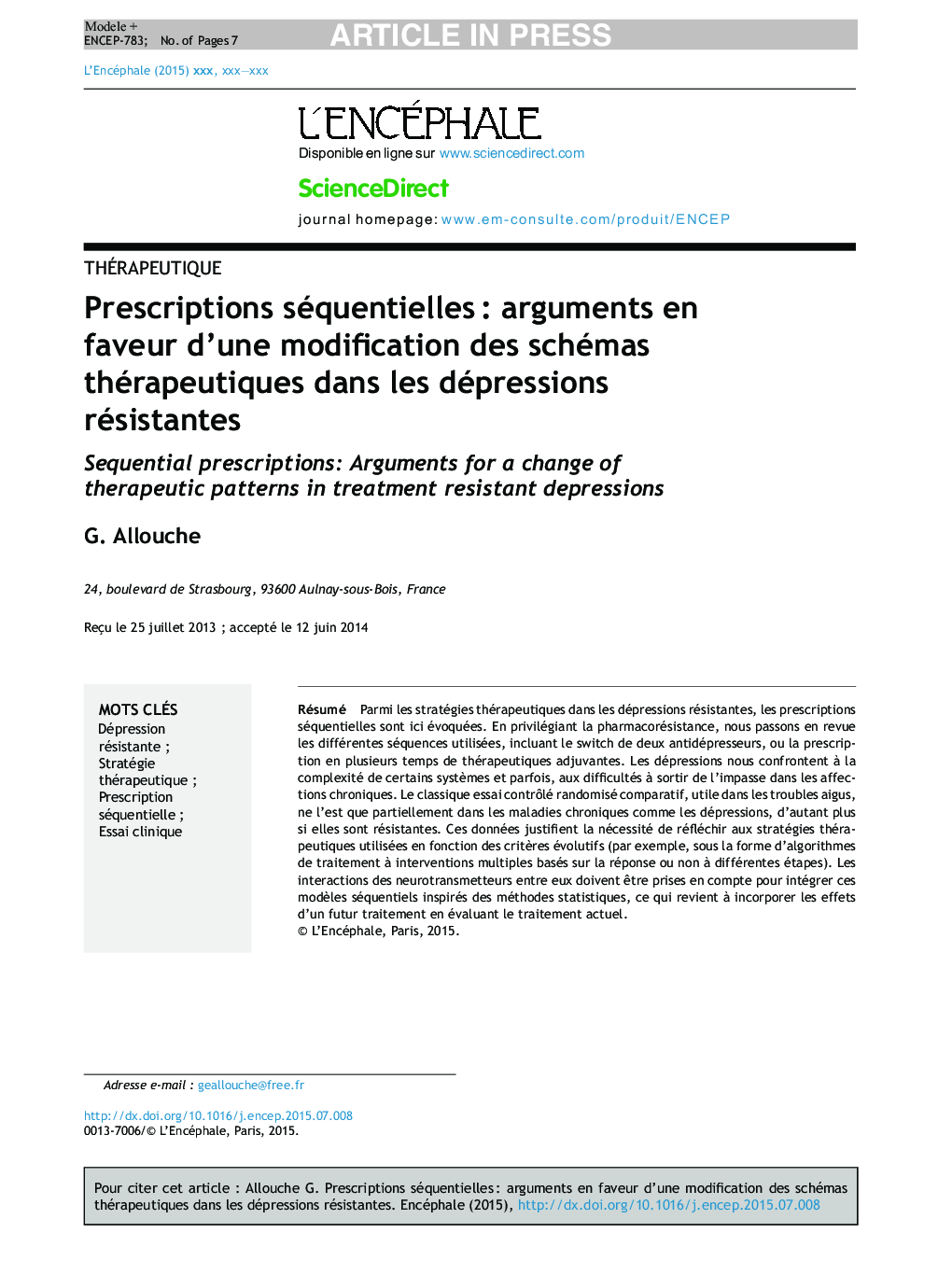| Article ID | Journal | Published Year | Pages | File Type |
|---|---|---|---|---|
| 4181476 | L'Encéphale | 2016 | 7 Pages |
Abstract
Among the therapeutic strategies in treatment of resistant depression, the use of sequential prescriptions is discussed here. A number of observations, initially quite isolated and few controlled studies, some large-scale, have been reported, which showed a definite therapeutic effect of certain requirements in sequential treatment of depression. The Sequenced Treatment Alternatives to Relieve Depression Study (STAR*D) is up to now the largest clinical trial exploring treatment strategies in non psychotic resistant depression in real-life conditions with an algorithm of sequential decision. The main conclusions of this study are the following: after two unsuccessful attempts, the chance of remission decreases considerably. A 12-months follow-up showed that the higher the use of the processing steps were high, the more common the relapses were during this period. The pharmacological differences between psychotropic did not cause clinically significant difference. The positive effect of lithium in combination with antidepressants has been known since the work of De Montigny. Antidepressants allow readjustment of physiological sequence involving different monoaminergic systems together. Studies with tricyclic antidepressant-thyroid hormone T3: in depression, decreased norepinephrine at the synaptic receptors believed to cause hypersensitivity of these receptors. Thyroid hormones modulate the activity of adrenergic receptors. There would be a balance of activity between alpha and beta-adrenergic receptors, depending on the bioavailability of thyroid hormones. ECT may in some cases promote pharmacological response in case of previous resistance, or be effective in preventing relapse. Cognitive therapy and antidepressant medications likely have an effect on different types of depression. We can consider the interest of cognitive therapy in a sequential pattern after effective treatment with an antidepressant effect for treatment of residual symptoms, preventing relapses and recurrences, in antidepressant maintenance. These data support the interest of therapeutic strategies based on evolutionary criteria. Sequential models inspired by statistical methods may incorporate the effects of a future treatment by measuring the current one.
Keywords
Related Topics
Health Sciences
Medicine and Dentistry
Psychiatry and Mental Health
Authors
G. Allouche,
